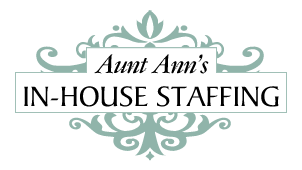Your relationship with your nanny is first and foremost employer-employee. You’ve hired someone. You’re the boss.
However, a parent-nanny relationship can be more complicated and difficult than the ones you have at your work with your own supervisor or those that you manage. The nanny relationship is more personal because they work out of your home and they’re caring for your most beloved relations – your children.
You may also feel inadequate or guilty for leaving your child with a caregiver or are struggling with the stress of balancing a career and parenthood. While these are normal feelings to have, they can interfere with the relationship you have with your nanny. It’s also normal for parents and their nanny to grow close over time due to the personal nature of the work. They may even feel like part of the family. Communicating with your nanny may become difficult if the professional foundation of the job starts to blur with personal feelings.
While communicating with your nanny borrows some of the same ideas as interacting with co-workers, there are some nuances. Our preferred payroll service, GTM, provides five actions to avoid to establish a professional employer-employee relationship.

Don’t Complain About Your Nanny Online
It’s one thing to ask a friend or close colleague for advice on communicating with your nanny especially if they’re household employers themselves. You could get some constructive feedback that will help your situation. Disparaging your nanny in message boards or on social media doesn’t help anyone and won’t solve your problem. It likely will make matters worse as it’ll fuel whatever anger you have toward your employee.
Don’t Expect Money to Solve Your Problems
To avoid a confrontation, it may seem tempting to throw a gift or some extra cash your nanny’s way in the form of a bigger bonus or raise. You’re not solving any issues. A gift or a bonus should be presented as an expression of gratitude or a reward for a job well done and needs to communicated in that way. Be specific in why your nanny has earned the bonus or raise. Money used to assuage your guilt or avoid a confrontation simply won’t work.
Don’t Overshare
While not communicating enough is an issue for some parents and their nannies, going in the opposite direction and oversharing can be as big of a concern. A nanny may become more like a friend than an employee so it can be easy to talk about marital problems, gossip about other parents, or complain about difficulties at work. That’s putting your nanny in an awkward position. Some situations may impact her job and those can be shared. For example, you just told your children you’re getting a divorce or you’re changing jobs to one that requires more time away from home. If it doesn’t affect your nanny, better to leave it unsaid.
Don’t Only Talk When Something is Wrong
If the only time you talk to your nanny is to point out when she did something wrong or failed to do a task, you won’t have a happy employee or one who will work for you much longer. Find time to praise your nanny for the things she’s doing right or thank her for doing something helpful or unexpected. That will go a long way to keeping your nanny committed to her job, which, remember, is caring for your most precious gift.
Don’t Air Disagreements in Front of the Children
When your children are around, you should only treat your nanny with kindness and respect. Your kids take cues from you on how to regard others. If they see you belittle or insult your nanny in front of them, they may see that as appropriate behavior and mimic that conduct. Any serious discussions should be respectful and done in private away from your children.
Your kids are constantly changing. That’s the nature of growing up. With so much change going on, open communication provides an opportunity to get on the same page with your nanny and understand each other’s point of view. She’s a valuable member of your team and contributes to the health and happiness of your child.

